<< Previous | Displaying results 451-460 of 571 for "" | Next >>
Irene and Rene were born Renate and Rene Guttmann. The family moved to Prague shortly after the twins' birth, where they were living when the Germans occupied Bohemia and Moravia in March 1939. A few months later, uniformed Germans arrested their father. Decades later, Irene and Rene learned that he was killed at the Auschwitz camp in December 1941. Irene, Rene, and their mother were deported to the Theresienstadt ghetto, and later to the Auschwitz camp. At Auschwitz, the twins were separated and subjected…

Rene and his twin sister Irene were born Rene and Renate Guttman. The family moved to Prague shortly after the twins' birth, where they were living when the Germans occupied Bohemia and Moravia in March 1939. A few months later, uniformed Germans arrested their father. Decades later, Rene and Irene learned that he was killed in the Auschwitz camp in December 1941. Rene, Irene, and their thier mother were deported to the Theresienstadt ghetto, and later to Auschwitz. There, the twins were separated and…
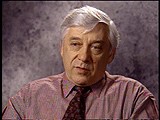
John, who was born to a non-Jewish Polish family, graduated from an art academy. Following the German invasion of Poland on September 1, 1939, John was in Krakow. Food became scarce in Krakow, with long lines of people waiting for whatever food was available. John decided to join the resistance against the Germans. By early 1940, he and two of his friends felt that they were in danger and decided to try to escape to France. John was caught and arrested during this escape attempt. He survived imprisonment…
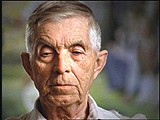
Leah grew up in Praga, a suburb of Warsaw, Poland. She was active in the Ha-Shomer ha-Tsa'ir Zionist youth movement. Germany invaded Poland in September 1939. Jews were forced to live in the Warsaw ghetto, which the Germans sealed off in November 1940. In the ghetto, Leah lived with a group of Ha-Shomer ha-Tsa'ir members. In September 1941, she and other members of the youth group escaped from the ghetto to a Ha-Shomer ha-Tsa'ir farm in Zarki, near Czestochowa, Poland. In May 1942, Leah became a courier…
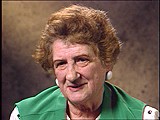
Leopold was a teacher in Krakow, Poland, when World War II began in 1939. While serving in the Polish army, he was captured by Germans. Leopold escaped from a prisoner-of-war transport. Soon after, he met the German industrialist Oskar Schindler. The two became friends. Leopold was forced to live in the Krakow ghetto. He later worked in Schindler's factory in Bruennlitz. He and the other Jews who worked there were treated relatively well and protected from the Nazis. After the war, Leopold moved to the…
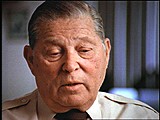
Leo was seven years old when Germany invaded Poland in September 1939. Before the war, Leo's father was a mathematics teacher and member of the Bialystok City Council. Fearing arrest, Leo's father fled Bialystok for Vilna just before the German occupation. Leo and his mother eventually joined his father in Vilna. After the Soviets occupied Vilna, Leo's father obtained transit visas to Japan. The family left Vilna in December 1940, traveled across the Soviet Union on the Trans-Siberian Express, and arrived…
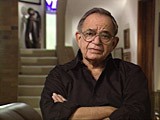
Leo was seven years old when Germany invaded Poland in September 1939. Before the war, Leo's father was a mathematics teacher and member of the Bialystok City Council. Fearing arrest, Leo's father fled Bialystok for Vilna just before the German occupation. Leo and his mother eventually joined his father in Vilna. After the Soviets occupied Vilna, Leo's father obtained transit visas to Japan. The family left Vilna in December 1940, traveled across the Soviet Union on the Trans-Siberian Express, and arrived…
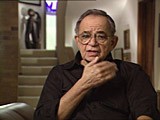
Leo was seven years old when Germany invaded Poland in September 1939. Before the war, Leo's father was a mathematics teacher and member of the Bialystok City Council. Fearing arrest, Leo's father fled Bialystok for Vilna just before the German occupation. Leo and his mother eventually joined his father in Vilna. After the Soviets occupied Vilna, Leo's father obtained transit visas to Japan. The family left Vilna in December 1940, traveled across the Soviet Union on the Trans-Siberian Express, and arrived…
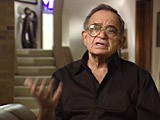
Leo was seven years old when Germany invaded Poland in September 1939. Before the war, Leo's father was a mathematics teacher and member of the Bialystok City Council. Fearing arrest, Leo's father fled Bialystok for Vilna just before the German occupation. Leo and his mother eventually joined his father in Vilna. After the Soviets occupied Vilna, Leo's father obtained transit visas to Japan. The family left Vilna in December 1940, traveled across the Soviet Union on the Trans-Siberian Express, and arrived…
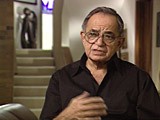
Leo was seven years old when Germany invaded Poland in September 1939. Before the war, Leo's father was a mathematics teacher and member of the Bialystok City Council. Fearing arrest, Leo's father fled Bialystok for Vilna just before the German occupation. Leo and his mother eventually joined his father in Vilna. After the Soviets occupied Vilna, Leo's father obtained transit visas to Japan. The family left Vilna in December 1940, traveled across the Soviet Union on the Trans-Siberian Express, and arrived…
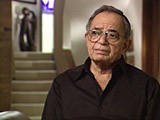
We would like to thank Crown Family Philanthropies, Abe and Ida Cooper Foundation, the Claims Conference, EVZ, and BMF for supporting the ongoing work to create content and resources for the Holocaust Encyclopedia. View the list of donor acknowledgement.